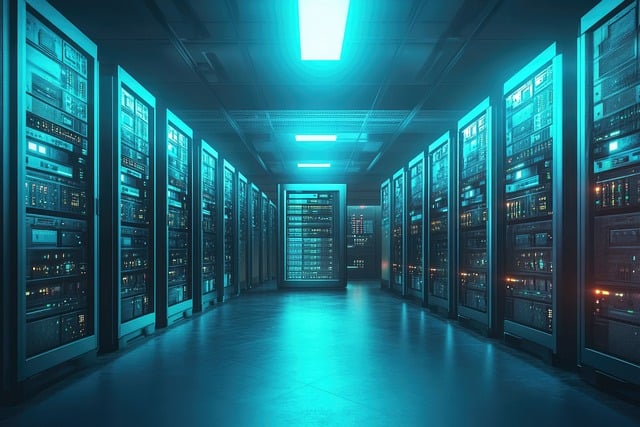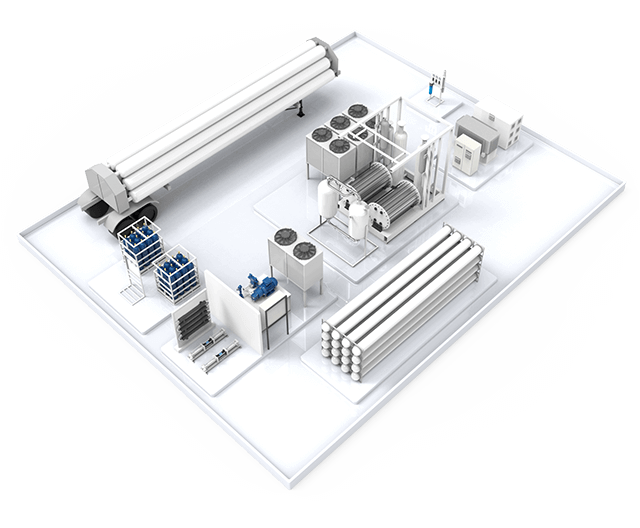Revolutionizing Data Center Power Redundancy with Hydrogen Fuel and Supercapacitors
As the digital world expands at an exponential rate, data centers have become the critical infrastructure supporting vast amounts of data processing, storage, and transmission. Ensuring uninterrupted power supply is vital for the smooth operation of these facilities. Traditionally, data centers have relied on diesel generators and batteries for backup power during outages. However, emerging technologies like hydrogen fuel cells and supercapacitors present a more efficient, sustainable, and reliable alternative.

Benefits of Hydrogen Fuel as a Backup Energy Supply
1. Sustainability and Environmental Impact: Hydrogen fuel cells offer a cleaner alternative to diesel generators. When hydrogen is used in a fuel cell, the primary by-products are water and heat, producing zero carbon emissions. This reduces the carbon footprint of data centers and helps them meet stringent environmental regulations and sustainability goals.
2. Efficiency and Reliability: Hydrogen fuel cells can start up quickly and provide continuous power without the need for frequent maintenance, unlike diesel generators. They also have a higher energy density, meaning they can store more energy in a smaller space, which is beneficial for data centers with limited space.
3. Scalability: Hydrogen fuel cells can be scaled up or down based on the energy requirements of the data center. This flexibility ensures that data centers can efficiently manage energy loads and maintain power redundancy.
On-Site Hydrogen Production and Storage
Producing hydrogen on-site offers significant advantages for data centers:

1. Energy Independence: On-site hydrogen production reduces the reliance on external fuel suppliers and minimizes supply chain vulnerabilities. This ensures a steady and reliable supply of hydrogen for the fuel cells.
2. Cost Savings: By producing hydrogen on-site, data centers can avoid the high costs associated with transporting and storing large quantities of hydrogen. Additionally, using renewable energy sources like solar or wind power for hydrogen production can further reduce operational costs.
3. Safety and Storage: Modern hydrogen storage technologies ensure that hydrogen can be safely stored on-site. Advanced storage solutions, such as high-pressure tanks and solid-state hydrogen storage, provide efficient and secure options for maintaining a steady hydrogen supply.
Supercapacitors for Uninterrupted Load
Supercapacitors, also known as ultracapacitors, are energy storage devices that can rapidly discharge and recharge, making them ideal for maintaining uninterrupted power loads in data centers:
1. Fast Response Time: Supercapacitors can respond almost instantaneously to power outages, ensuring that there is no interruption in the power supply to critical data center operations. This rapid response time is crucial for maintaining data integrity and preventing hardware damage.
2. High Efficiency: Supercapacitors have a higher efficiency compared to traditional batteries. They can cycle through thousands of charge and discharge cycles without significant degradation, providing a long-lasting and reliable power supply.
3. Complementary to Hydrogen Fuel Cells: When used in conjunction with hydrogen fuel cells, supercapacitors can bridge the gap during the initial start-up time of the fuel cells, ensuring a seamless transition and continuous power supply. This combination enhances the overall efficiency and reliability of the backup power system.
Comparative Advantages Over Generators and Batteries
1. Environmental Benefits: Diesel generators emit harmful pollutants and greenhouse gases, contributing to environmental degradation. Hydrogen fuel cells, on the other hand, produce only water and heat as by-products. Batteries, while cleaner, involve resource-intensive production processes and disposal challenges. The combination of hydrogen fuel cells and supercapacitors presents a greener alternative.
2. Maintenance and Operational Costs: Generators require regular maintenance and fuel replenishment, which can be costly and time-consuming. Batteries, although relatively low maintenance, have a limited lifespan and require replacement after a few years. Hydrogen fuel cells and supercapacitors, however, offer longer operational lifespans and lower maintenance requirements, reducing long-term costs.
3. Space Efficiency: Hydrogen fuel cells and supercapacitors occupy less space compared to large battery banks and diesel generators. This is particularly advantageous for data centers where space is at a premium.
4. Energy Storage and Management: The high energy density of hydrogen allows for efficient storage of large quantities of energy, ensuring that data centers have ample backup power. Supercapacitors provide efficient energy management by handling rapid power fluctuations and ensuring a stable power supply.
Conclusion
The integration of hydrogen fuel cells and supercapacitors offers a transformative approach to data center power redundancy. By producing hydrogen on-site, storing it efficiently, and utilizing it through fuel cells, data centers can achieve a sustainable, reliable, and efficient backup power system. The complementary use of supercapacitors ensures uninterrupted power loads and enhances the overall performance of the backup system. This innovative solution not only addresses the limitations of traditional generators and batteries but also aligns with the growing emphasis on sustainability and environmental responsibility. As the demand for data centers continues to rise, embracing advanced energy solutions like hydrogen fuel cells and supercapacitors will be pivotal in shaping the future of data center infrastructure.